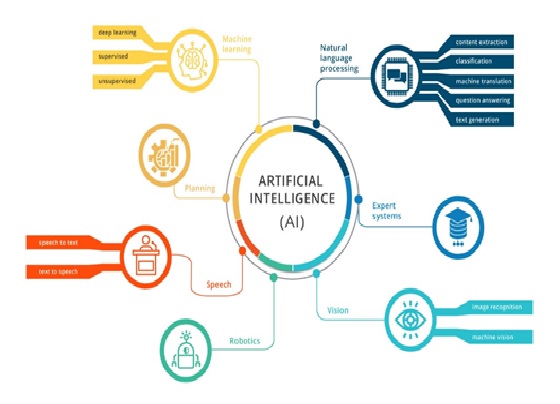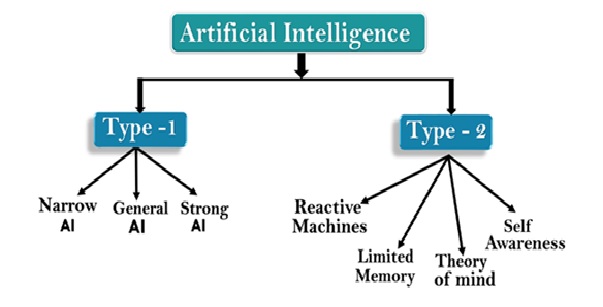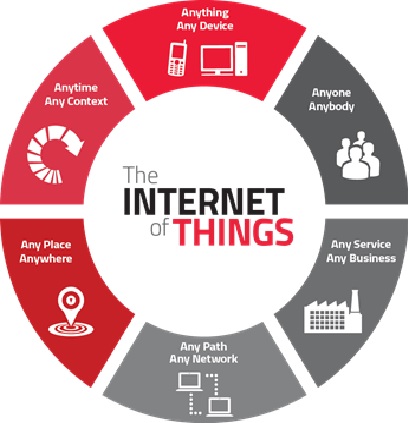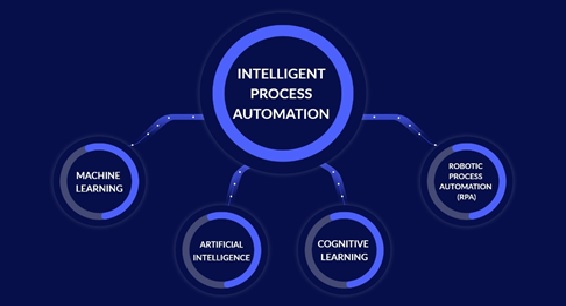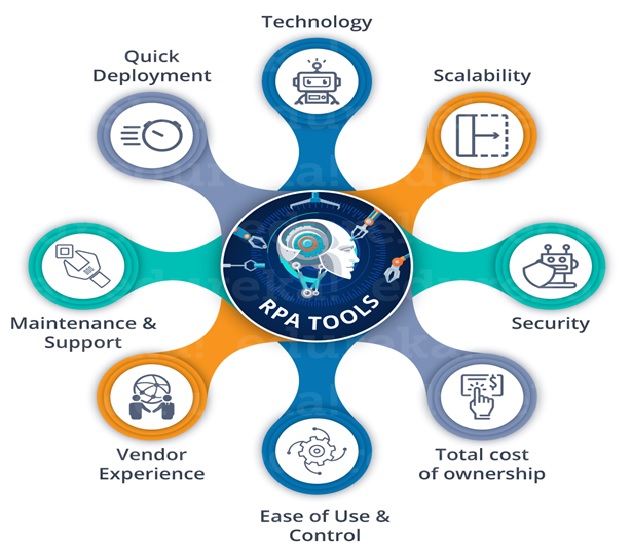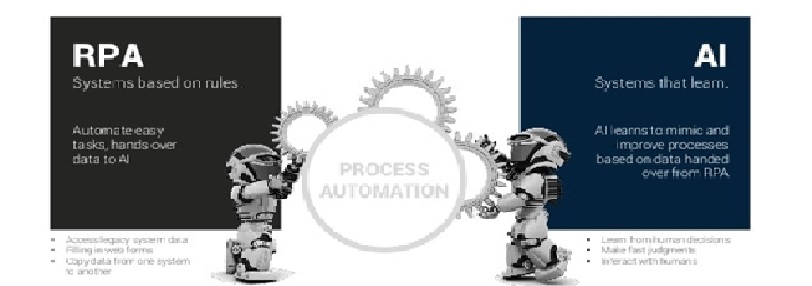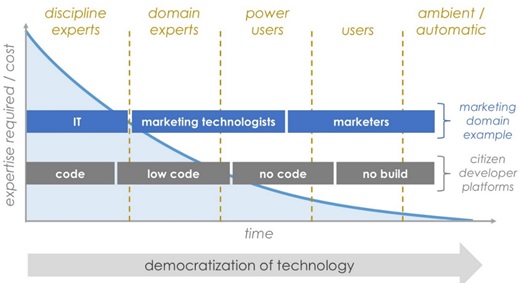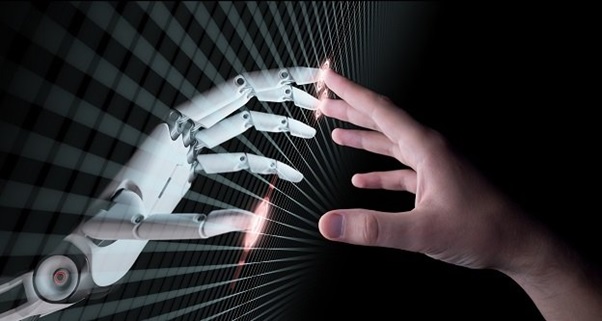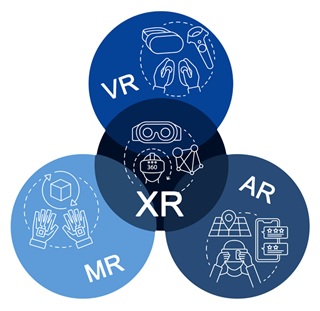Trends in Artificial Intelligence in 2021
The pandemic has accelerated the application of artificial intelligence in several businesses. IDC estimated that investment in AI technology will rise to $97.9 billion by 2023, according to a report released in 2019. The potential utility of artificial intelligence has only increased since the COVID-19 epidemic rocked the planet. According to a McKinsey State of AI report issued in November 2020, at least half of the companies have implemented AI capabilities.

Figure 1. Artificial Intelligence
AI will become more essential as companies continue to automate day-to-day operations and better comprehend COVID-affected datasets. Since the lockdown and work-from-home policy was implemented, businesses are more technologically linked than ever before. Figure 1 shows Artificial Intelligence.
Artificial Intelligence (AI) Trends to Watch in 2021
The focus of AI adoption is to improve the efficiency or effectiveness of operations. It may also be used to enhance the stakeholder experience [1]. Let's take a look at the most important trends for 2021.
1. Greater Cloud and AI collaboration
Artificial Intelligence, according to Rico Burnett, director of client innovation at legal services provider Exigent, will play a key role in the wider adoption of Cloud Solutions in 2021. Artificial intelligence will make it easy to monitor and manage cloud resources as well as the huge quantity of data accessible [1].
2. AI solutions for IT
The number of AI solutions that are being developed for IT will increase in 2021. Capgemini’s Simion predicts that AI solutions that can detect common IT problems on its own and self-correct any small malfunctions or issues will see an increase in the upcoming years. This will reduce downtime and allow the teams in an organisation to work on high-complexity projects and focus elsewhere [2].
3. AIOps becomes more popular
In 2021, the number of AI solutions being created for IT will rise. AI solutions that can identify typical IT problems on their own and self-correct any minor faults or difficulties, according to Capgemini's Simion, are expected to grow in popularity in the coming years [3]. This will decrease downtime and allow teams to work on high-complexity projects while focusing on other things.
4. AI will help in structuring data
More unstructured data will be organised in the future using natural language processing and machine learning methods. Organizations will take use of these technologies and generate data that can be used by RPA (robotic process automation) technology to automate transactional activities. RPA is one of the software industry's fastest-growing segments [4]. Its sole restriction is that it can only work with organised data. Unstructured data may be readily transformed into structured data with the aid of AI, resulting in a specified output.
5. Artificial intelligence talent will remain tight
In 2021, the scarcity of talent is likely to be a problem in the adoption of artificial Intelligence. There has been a chronic skills vacuum in AI, and businesses have finally recognised its promise. It is critical to close this gap and teach artificial intelligence to a larger number of individuals. In 2021, it will be critical to ensure that a wider range of users have access to artificial intelligence in order to focus on technology, learning techniques, and enabling a shift in the workplace [5].
6. Large scale adoption of AI in the IT industry
We have seen continuous growth in adoption of AI within the IT industry. However, Simion predicts that organisations will use AI in production and start using them at a large scale. With the help of artificial intelligence, an organisation can get ROI in real-time [6]. This means that organisations will see their efforts being paid off.
7. AI Ethics is the focus
The usage of AI in the IT industry has been steadily increasing. Simion, on the other hand, believes that businesses will begin to utilise AI in manufacturing and on a huge scale. An organisation may achieve real-time ROI with the aid of artificial intelligence [7]. This implies that organisations will reap the benefits of their work.
8. Augmented Processes become increasingly popular
When it comes to innovation and automation in 2021, artificial intelligence and data science will be a component of a larger picture. Data ecosystems are scalable, lean, and offer data to a variety of sources on time. However, a foundation must be established in order to adapt and promote innovation. Companies will take a step further in optimising their augmented business and development processes, according to Ana Maloberti, a big data engineer at Globant. Software development processes can be optimised using Artificial Intelligence, and we may hope for a broader collective intelligence and enhanced cooperation [8]. To evolve towards a sustainable delivery model, we need to build a data-driven culture and grow out of the experimental stages.
8. Augmented Processes become increasingly popular
According to Dave Lucas, senior director of product at customer data centre Tealium, there will be a greater emphasis on explainability [9]. As more data rules are implemented, AI's trustworthiness will become increasingly important. To properly comprehend and express how each attribute contributes to the machine learning model's final prediction or result.
References:
- https://www.aretove.com/artificial-intelligence-trends-in-2021
- https://www.compunneldigital.com/infographic/top-ai-trends-to-watch-in-2021/
- https://www.cioinsight.com/news-trends/artificial-intelligence-software/
- Trends in Artificial Intelligence, vol. 4, no. 1, Dec. 2020.
- Trends in Artificial Intelligence, vol. 5, no. 1, May 2021.
- https://devcount.com/ai-trends/
- https://home.kpmg/xx/en/home/insights/2021/02/trends-in-artificial-intelligence.html
- https://serokell.io/blog/ai-trends
- https://onlim.com/en/artificial-intelligence-trends/
Cite this article:
C. V. Harry (2021), Trends in Artificial Intelligence in 2021, AnaTechMaz, pp. 2



